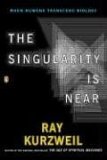Summary | Excerpt | Reviews | Read-Alikes | Genres & Themes | Author Bio

Embracing the Promise of Biological Enhancement
by Ramez NaamAn intriguing presentation by an unabashed advocate of the technological tricking and co-opting of mother nature.
What if you could be smarter, stronger, and have a better memory just by taking a pill?
What if we could alter our genes to cure Alzheimer's and Parkinson's?
What if we could halt or even reverse the human aging process?
What if we could communicate with each other simply by thinking about it?
These questions were once the stuff of science fiction. Today, advances in biotechnology have shown that they're plausible, even likely to be accomplished in the near future. In labs around the world, researchers looking for ways to help the sick and injured have stumbled onto techniques that enhance healthy animals—making them stronger, faster, smarter, and longer-lived—in some cases, even connecting their minds to robots and computers across the Internet. Now science is on the verge of applying this knowledge to healthy men and women, allowing us to alter humanity in ways we'd previously only dreamed possible. The same research that could cure Alzheimer's is leading to drugs and genetic techniques that could boost human intelligence. The techniques being developed to stave off heart disease and cancer, have the potential to slow or even reverse human aging. And brain implants that restore motion to the paralyzed and sight to the blind are already allowing a small set of patients to control robots and computers simply by thinking about it.
Not everyone welcomes this scientific progress. Cries of "against nature" arise from skeptics even as scientists break new ground at an astounding pace. Across the political spectrum, the debate roils: Should we embrace the power to alter our minds and bodies, or should we restrict it?
Distilling the most radical accomplishments being made in labs worldwide, including gene therapy, genetic engineering, stem cell research, life extension, brain-computer interfaces, and cloning, More Than Human offers an exciting tour of the impact biotechnology will have on our lives. Throughout this remarkable trip, author Ramez Naam shares an impassioned vision for the future with revealing insight into the ethical dilemmas posed by twenty-first-century science.
Encouraging us to celebrate rather than fear these innovations, Naam incisively separates fact from myth, arguing that these much-maligned technologies have the power to transform the human race for the better, so long as individuals and families are left free to decide how and if to use them.
If you've ever wondered about the boundaries of humanity, More Than Human offers a vision of a world where we use our knowledge to improve ourselves, unhindered by the fear of change.
 Bill McKibben, author Enough: Staying Human in an Engineered Age
Ramez Naam provides a reliable and informed cook's tour of the world we might choose if we decide that we should fast-forward evolution. I disagree with virtually all his enthusiasms, but I think he has made his case cogently and well.
Bill McKibben, author Enough: Staying Human in an Engineered Age
Ramez Naam provides a reliable and informed cook's tour of the world we might choose if we decide that we should fast-forward evolution. I disagree with virtually all his enthusiasms, but I think he has made his case cogently and well. Bill McKibben, author Enough: Staying Human in an Engineered Age
Ramez Naam provides a reliable and informed cook's tour of the world we might choose if we decide that we should fast-forward evolution. I disagree with virtually all his enthusiasms, but I think he has made his case cogently and well.
Bill McKibben, author Enough: Staying Human in an Engineered Age
Ramez Naam provides a reliable and informed cook's tour of the world we might choose if we decide that we should fast-forward evolution. I disagree with virtually all his enthusiasms, but I think he has made his case cogently and well.
If you liked More Than Human, try these:

by Harry Bruinius
Published 2007
Charts the little-known history of eugenics in America—a movement that began in the early twentieth century and resulted in the forced sterilization of more than 65,000 Americans.

by Ray Kurzweil
Published 2006
The bestselling author of The Age of Spiritual Machines presents the next stage of his compelling view of the future: the merging of humans and machines.